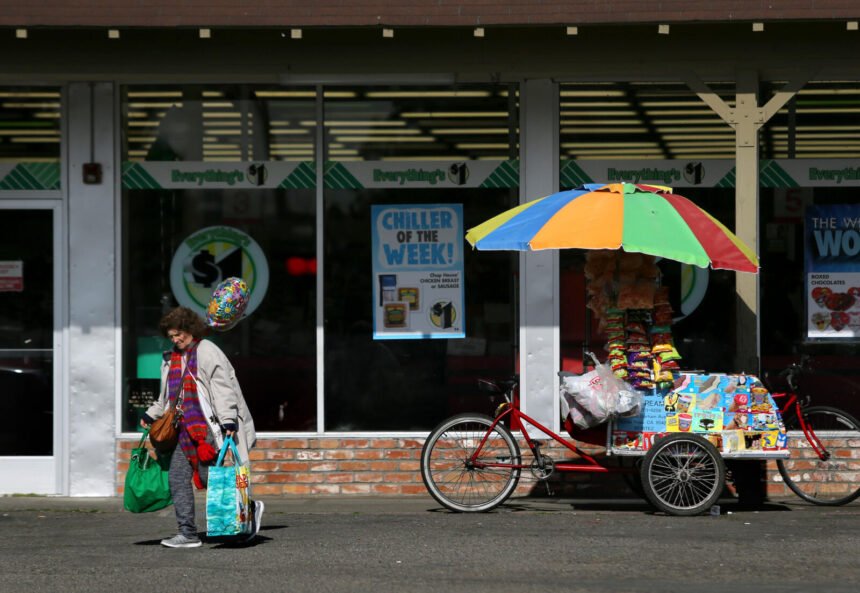While many in the mostly Latino Santa Rosa neighborhood were concerned about speaking publicly about the president’s immigration policies, those who did speak fear his plans could harm their families.
Monday, Jan. 20, looked like a regular Monday in Santa Rosa’s Roseland neighborhood.
Sebastopol Road, the main thoroughfare of the most concentrated Latino community in Sonoma County — around 65% of the neighborhood’s population identifies as such — was bustling with activity.
Barbershop chairs were filled with kids and adults getting haircuts. Moms and grandmas, with kids out of school for Martin Luther King Jr. Day, were doing their laundry and grabbing groceries.
But dampening the sunny January day, was the morning’s ceremony 2,400 miles away in Washington, D.C., during which Donald Trump became president of the United States for a second term. Trump used his inauguration speech to outline policies that could impact many of Roseland’s residents, saying his first order of business would be to declare a national emergency at the country’s southern border.
“All illegal entry will be immediately halted and we will begin the process of returning millions and millions of criminal aliens to the places from which they came,” Trump said. He also said the government would reinstate his “Remain in Mexico” policy, end the practice of “catch and release” and would send troops to the southern border to prevent additional immigration.
“Ah yes, President Trump,” said one Roseland man, lighting up a cigarette Monday morning. “That’s a thing again, isn’t it?”
The man requested to remain anonymous, out of fear of retribution and being identified, he said.
Dozens of other people The Press Democrat approached along Sebastopol Road declined to be interviewed, showing and citing discomfort with the topic.
The shift in federal leadership and immigration policies comes less than a week after the neighborhood experienced false alarms of immigration raids at the Home Depot on Sebastopol Road and Food Maxx in Roseland.
Those who did go on record said Trump’s immigration policies are examples of regressive scare tactics that could have real impact on their families.
Angel Santiago, who was working with a crew of eight men on the corner of Dutton Road and Sebastopol Road, stopped to say that President Trump’s immigration policies frighten him.
“They make me feel a lot,” he said. “They would affect me and my family.”
If he had the chance to talk to President Trump, Santiago said he’d offer the simple plea: “We work hard. Don’t deport us to a different country.”
Emanuel Santiago, a Sonoma State University student from Roseland, said the Trump presidency represents a “sign of regression” for the country.
“We are walking backward. We invite immigrants when times are good and then there’s this narrative that Mexican Americans are stealing jobs when things are bad,” he said.
Amie Windsor is the Community Journalism Team Lead with The Press Democrat. She can be reached at amie.windsor@pressdemocrat.com or 707-521-5218.











